Filter by

Advances in Image Processing, Analysis and Recognition Technology
Neural networks are increasingly being used in the field of dentistry. The aim of this literature review was to visualize the state of the art of artificial intelligence in dental applications, such as the detection of teeth, caries, filled teeth, crown, prosthesis, dental implants and endodontic treatment
- Edition
- -
- ISBN/ISSN
- 9783036536057, 9783036536064
- Collation
- 386
- Series Title
- -
- Call Number
- -

A Decentralized Control Strategy for High Density Material Flow Systems with …
This work presents a universal decentralized control strategy for grid-based high-density material flow systems with automated guided vehicles and gives insights into the system behavior as well as the solution quality.
- Edition
- -
- ISBN/ISSN
- 978-3-7315-0389-7
- Collation
- 160 hlm
- Series Title
- -
- Call Number
- -

Advances in Hybrid Rocket Technology and Related Analysis Methodologies
This paper presents an attempt to use the hybrid rocket for marine applications with a 500 N class hybrid motor. A 5-port high density polyethylene (HDPE) fuel grain was used as a test-bed for the preliminary assessment of the underwater boosting device
- Edition
- -
- ISBN/ISSN
- 9783039433902
- Collation
- 352
- Series Title
- -
- Call Number
- -

Adsorption Desalination and Cooling Systems: Advances in Design, Modeling and…
Increasing energy efficiency; reducing energy demand, greenhouse gas emissions, and the use of waste; and integrating renewable and recycled heat from low-temperature sources are significant challenges today and are key parts of 4th Generation District Heating (4GDH) concept. On the other hand, currently about one billion people around the world are suffering from water scarcity, and another th…
- Edition
- -
- ISBN/ISSN
- 9783036559148
- Collation
- oer.unej.ac.id
- Series Title
- -
- Call Number
- -

Adsorbents for Water and Wastewater Treatment and Resource Recovery
Adsorption is a well-established operation used for water decontamination and the remediation of industrial effluents. It is also recognized as a key technology for recovering substances of economic interest or those at risk of scarcity. The new sustainability paradigm of the circular economy and the current context of promoting the efficient use of natural resources, water and energy have been…
- Edition
- -
- ISBN/ISSN
- 9783036547213
- Collation
- oer.unej.ac.id
- Series Title
- -
- Call Number
- -
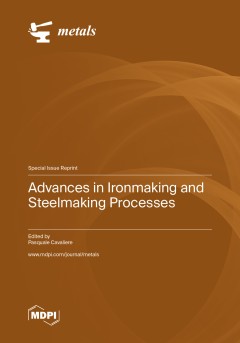
Advances in Ironmaking and Steelmaking Processes
In recent years, ironmaking and steelmaking have witnessed the incorporation of various new processes and technologies that can be operated and organized in different combinations depending on the properties of raw materials and the required quality of the final products. Indications from the steel industry and local and global government institutions suggest that the breakthrough technologies …
- Edition
- -
- ISBN/ISSN
- 9783036575490
- Collation
- oer.unej.ac.id
- Series Title
- -
- Call Number
- -
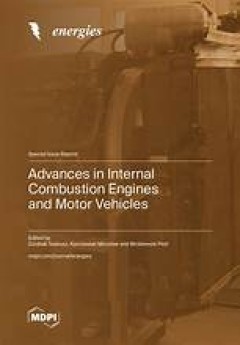
Advances in Internal Combustion Engines and Motor Vehicles
- Edition
- -
- ISBN/ISSN
- 9783036586472
- Collation
- oer.unej.ac.id
- Series Title
- -
- Call Number
- -
- Edition
- -
- ISBN/ISSN
- 9783036586472
- Collation
- oer.unej.ac.id
- Series Title
- -
- Call Number
- -
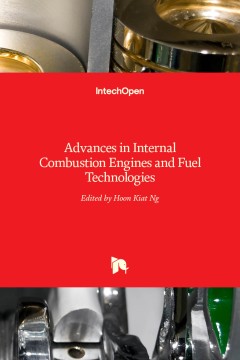
Advances in Internal Combustion Engines and Fuel Technologies
This book highlights the important need for more efficient and environmentally sound combustion technologies that utilise renewable fuels to be continuously developed and adopted. The central theme here is two-fold: internal combustion engines and fuel solutions for combustion systems. Internal combustion engines remain as the main propulsion system used for ground transportation, and the numbe…
- Edition
- -
- ISBN/ISSN
- 9789535163244
- Collation
- oer.unej.ac.id
- Series Title
- -
- Call Number
- -
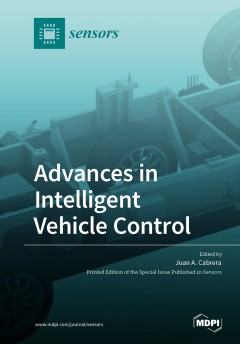
Advances in Intelligent Vehicle Control
This book is a printed edition of the Special Issue Advances in Intelligent Vehicle Control that was published in the journal Sensors. It presents a collection of eleven papers that covers a range of topics, such as the development of intelligent control algorithms for active safety systems, smart sensors, and intelligent and efficient driving. The contributions presented in these papers can se…
- Edition
- -
- ISBN/ISSN
- 9783036560106
- Collation
- oer.unej.ac.id
- Series Title
- -
- Call Number
- -
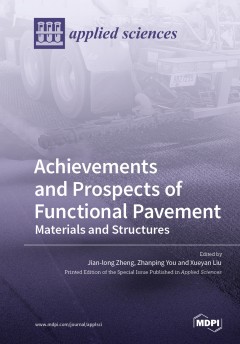
Achievements and Prospects of Functional Pavement
In order to further promote the development of functional pavement technology, a Special Issue entitled “Achievements and Prospects of Functional Pavement” has been proposed by a group of guest editors. To achieve this objective, the articles included in this Special Issue are related to different aspects of functional pavements, including green roads to decrease carbon emissions, noise, an…
- Edition
- -
- ISBN/ISSN
- 9783036555423
- Collation
- oer.unej.ac.id
- Series Title
- -
- Call Number
- -
 Computer Science, Information & General Works
Computer Science, Information & General Works  Philosophy & Psychology
Philosophy & Psychology  Religion
Religion  Social Sciences
Social Sciences  Language
Language  Pure Science
Pure Science  Applied Sciences
Applied Sciences  Art & Recreation
Art & Recreation  Literature
Literature  History & Geography
History & Geography